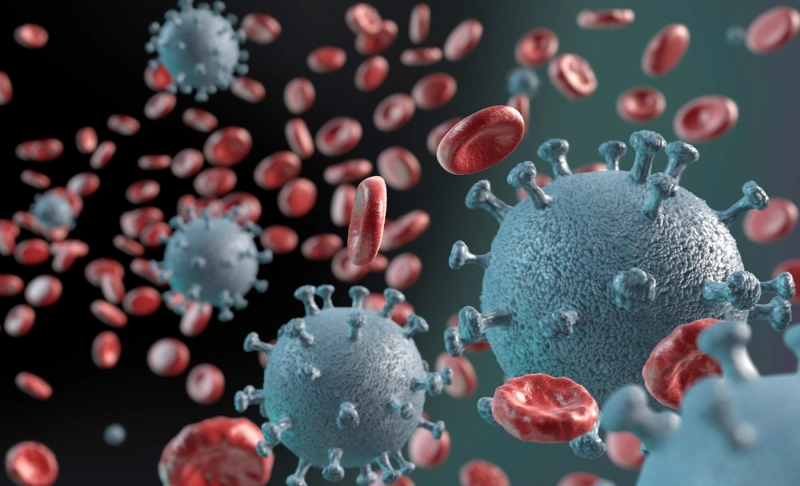January 13 2022
Misleading: Vaccines are unsafe – more than 30,000 women in the U.K. have reported disrupted periods after their COVID-19 vaccine.

The Verdict Misleading
Reports about changes in women's menstrual cycles are being used to falsely claim that vaccines negatively affect fertility.
Reports about changes in women's menstrual cycles are being used to falsely claim that vaccines negatively affect fertility. An article published by the Daily Mail is doing the rounds on Facebook. It concerns reports that 35,000 women in Britain have noted irregularities in their periods: reports that some are using to further claims about vaccines being unsafe. Dr. Victoria Male, a lecturer in reproductive immunology at Imperial College London wrote in the British Medical Journal that more than 30,000 women across the U.K. have reported disruption to their period or unexpected vaginal bleeding after receiving a COVID-19 vaccine. Dr. Male wrote, "Most people who report a change to their period after vaccination find that it returns to normal the following cycle and, importantly, there is no evidence that covid-19 vaccination adversely affects fertility. In clinical trials, unintended pregnancies occurred at similar rates in vaccinated and unvaccinated groups. In assisted reproduction clinics, fertility measures and pregnancy rates are similar in vaccinated and unvaccinated patients." While the Facebook post doesn't directly link COVID-19 vaccines with infertility, people who harbour doubts about the vaccines can draw erroneous inferences because the aforementioned context is missing. Misinformation about the impact of COVID-19 vaccines on women's fertility is causing many women to avoid getting the jab. Dr. Male asserts that research into this possible adverse reaction is important for the vaccination program to be a success and not because vaccines are unsafe. She says, "Vaccine hesitancy among young women is largely driven by false claims that covid-19 vaccines could harm their chances of future pregnancy. Failing to thoroughly investigate reports of menstrual changes after vaccination is likely to fuel these fears. If a link between vaccination and menstrual changes is confirmed, this information will allow people to plan for potentially altered cycles." The Centers for Disease Control and Prevention, the World Health Organization, and public health bodies have reiterated that vaccines are safe, effective, and have no impact on fertility. Despite the repeated affirmations that the vaccines do not pose any risk to pregnant, lactating women, or those planning a pregnancy, false theories about COVID-19 vaccines negatively impacting women's reproductive health have been repeatedly pushed by anti-vaxxers. Anecdotes about changes to menstrual cycles are being incorrectly presented as evidence to further the claim that vaccines are unsafe. Alice Lu-Culligan an M.D.-Ph.D. student at Yale School of Medicine and Randi Hutter Epstein, resident writer at the Yale School of Medicine explained in an article published by the New York Times that it is normal for menstrual changes to occur in response to an immune system change. "Periods also involve the immune system. The thickening and thinning of the uterine lining are facilitated by different teams of immune cells and signals moving in and out of the reproductive tract; one wave helps to build, others help to dismantle. The process of shedding this lining during menstruation is in part an inflammatory response, which is why women often experience cramping and pain during this stage. Since the cycle is supported by the immune system at every turn, it is possible that the vaccines, which are designed to ignite an immune response, temporarily change the normal course of events. For example, an activated immune system might interfere with the usual balance of immune cells and molecules in the uterus. These types of disturbances have been found in studies to contribute to changes in periods, including heavy menstrual flows." Medical experts have also opined that there exists a data gap with respect to research about women's reproductive health. There is also no data that establishes a potential relationship between vaccines and women's menstrual cycles. In an opinion piece, published in the New York Times about there not being enough research on menstruation, Dr. Hugh Taylor, chair of the department of obstetrics, gynecology and reproductive sciences at Yale School of Medicine was quoted as saying, "Menstruation is something we don’t know enough about. It’s an important indicator of a person’s health, like any other bodily function.” The COVID-19 pandemic has given rise to a lot of potentially dangerous misinformation. For reliable advice on COVID-19, including symptoms, prevention, and available treatment, please refer to the World Health Organization or your national healthcare authority.


